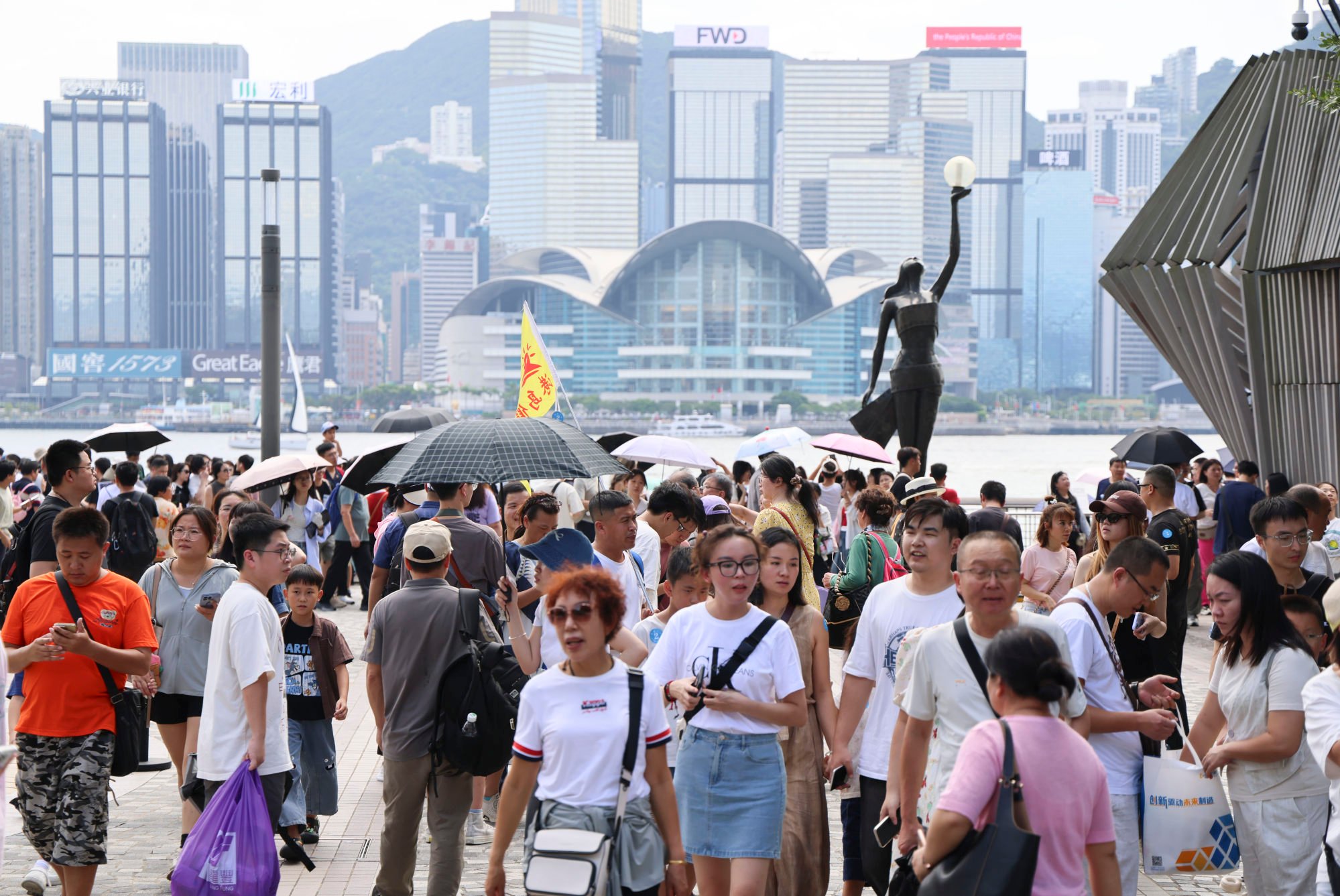Hong Kong Chief Executive John Lee Ka-chiu’s firing of two ministers and replacing them with new faces is part of a gambit to minimise any damage to his government’s standing and even secure decisive short-term wins on the tourism and aviation fronts as emphasised by Beijing, analysts said.
They also said his move on Thursday to remove tourism and transport ministers, Kevin Yeung Yun-hung and Lam Sai-hung, right in the middle of his term aligned with his “result-oriented” governing approach.
Lee’s administration has put revising the economy and improving livelihoods through “reforms” high on the agenda after enacting the city’s domestic national security law.
Do you have questions about the biggest topics and trends from around the world? Get the answers with SCMP Knowledge, our new platform of curated content with explainers, FAQs, analyses and infographics brought to you by our award-winning team.
Hong Kong’s position as an international centre for finance, shipping and trade as well as a prominent talent hub were underlined in plans laid out at the third plenum in July.
But amid such ambitions, the city’s balance sheet remains poor, with finance chief Paul Chan Mo-po saying earlier this week the deficit would be more than double an initial projection of HK$48 billion (US$6.16 billion) for the 2024-25 financial year.
“Lee wants to provide needed short-term stimulus to the economy by leveraging the tourist and transport sectors,” said Lau Siu-kai, a consultant at the Chinese Association of Hong Kong and Macau Studies, a semi-official think tank.
“At least he tried to make sure that no accidents or mistakes stemming from incompetence will happen.”
Lau noted the opening of Kai Tak Sports Park and the National Games next year allowed no room for mistakes as the central government would be watching their execution closely.
Yeung, replaced by permanent secretary for housing Rosanna Law Shuk-pui, was taken to task by critics for making slow progress on tourism reform and poor management of the Kai Tak Cruise Terminal, which struggled with inadequate transport links and underused facilities.
Lam, who was accused of poor oversight of the HK$141.5 billion third runway project at Hong Kong International Airport, was succeeded by Mable Chan, who was his permanent secretary for transport and logistics.

International relations expert Wilson Chan Wai-shun, director of policy research and co-founder at the Pagoda Institute, said the reshuffle matched with Lee’s results-oriented governance style.
“Beijing has repeatedly called for economic recovery. So Lee, as he is keen on achieving KPIs, would naturally turn to areas that can generate results quickly to answer Beijing,” Chan said.
Veteran political commentator Sonny Lo Shiu-hing said the departure of the two ministers appeared to be related to a series of meetings between Xia Baolong, director of the Hong Kong and Macau Affairs Office (HKMAO), and top city officials.
In a May meeting with Yeung, Xia suggested that “anywhere in Hong Kong” could be a tourist hotspot. In a November meeting with business leaders held in Shenzhen, he again advised the city to make good use of its rugged coastline and islands.
What appeared to be suggestions from a top Beijing official, Lo said, were essentially a series of “indirect criticism” of the tourism minister.
“Xia Baolong’s approach is very different from that of the previous HKMAO director. He is very assertive,” he said. “He was receiving Hong Kong officials who went to Beijing and directly explained the content of the policies to him.”
He said the timing was not surprising, given that Lee was due to meet Chinese President Xi Jinping later this month on his annual duty visit. The two sacked officials might also have failed to impress the city chief with their “limited input” in the policy address, Lo said.
With Lam, Lee might have felt pressure to fulfill Beijing’s mission related to transport policies in the second half of his term, and he had doubts about whether the outgoing minister could deliver with his “mediocre performance”, he said.
University of Hong Kong emeritus Professor John Burns, who specialises in public administration, said sacking ministers could telegraph to the rest of government that authorities were taking problems seriously.
“The Hong Kong government wants the central authorities and the public to see that they are working flat out to solve the problems, to give the public the perception that they are performing,” he added.
More from South China Morning Post:
- Minister reshuffle seen as helping Hong Kong’s John Lee achieve mission critical results
- Hong Kong to be extra cautious while tapping income sources to cut deficit: John Lee
For the latest news from the South China Morning Post download our mobile app. Copyright 2024.





